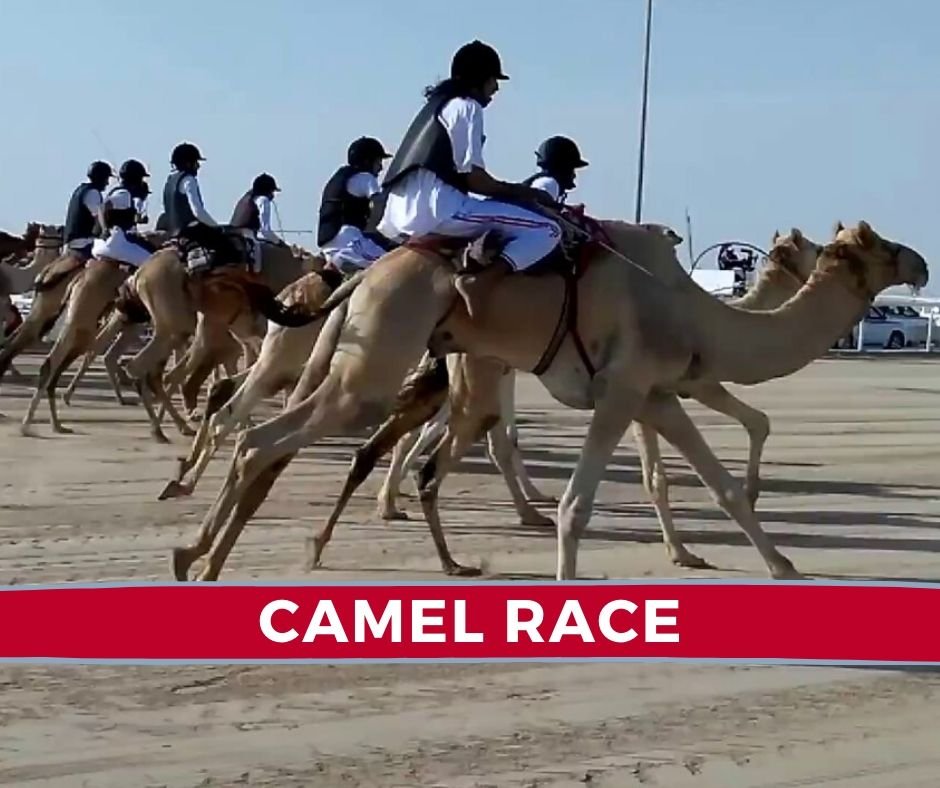The history of Qatar is almost 4,000 years BC, as per archeological proof, excavations, inscriptions and pottery found in different various areas of the country. Today, there is a collective effort by all to promote and celebrate the culture and legacy of Qatar.
For example, the old souqs have been restored and are bustling markets full of vitality. Traditional buildings have been restored, including mosques for the heart of Doha. Qataris are setting up businesses promoting old crafts and traditions. Historic sites, libraries, magnificent collections of Arabic writings, calligraphy and art are available for research and for the public to see through the efforts of Qatar Foundation (QF), Qatar Museums (QM) and the Ministry of Culture and Sports.
Here are some of the things that come at the top of the list when you think about the amazing country of Qatar!
Fishing for pearls
Pearl fishing is ingrained in Qatar’s past. You will find hints of it wherever even the fact that the villages in the north of Qatar have long been abandoned. Among the tools the divers used were the scuttle, Al-futam, Al-falakah and thick stones that were attached to their legs or waist for a quick respect to the seabed. To get an idea of what pearl diving included and to see few of the actual pearls and equipment used, visit the museum at Al Zubarah Fort. While visiting Souq Waqif, don’t forget to go to Pahlwan Saad Ismail Al Jassim – The old pearl diver’s shop. This shop is owned by probably the main surviving pearl diver in Qatar!
Language
Arabic is the official and main language. But, English is widely spoken in every part of the country. There are lots of places where you can learn the language, and Al Sheik Abdullah bin Zaid Al-Mahmoud Islamic Cultural Center is a famous choice with many courses running at various levels.
Disclaimer: Please call and check for the dates and timings of the classes before enrollment.
- Learn Arabic Names and their English Counterparts
- 10 Most Important Arabic words to know while Living in Qatar
Art
Ancient geometric designs, calligraphy and etchings are verification of the highly creative and artistic people. In case, it is interesting to take note of the development and art in Qatar over the past 50 years, from one of a representational form to the more abstract. Take for example work by Yousef Ahmad, a local artist whose work spans thirty years. The artist’s painting of Al Zubarah is a phenomenal portrayal of the lost town as it would have appeared in its hay day, though his most recent works are interesting edited abstracts that use calligraphy and locally found materials, for example palm fronds and wire mesh.
Today, Qatar Museums is supporting local artists. At the heart of this is a pledge to helping Qatar start art, culture and legacy experience from within. This enables the country to have extraordinarily affect on the world and have the rest of the world comprehend its people return.
Music
For many years, songs have been passed on by word of mouth, from generation to generation. Still today, songs and poetry keep on playing an important part in everyday Qatari life.
Percussion forms the basis of most Qatari music. A typical instrument of the pearl fishermen was the galahs, a tall clay jar which was used to make bass and high treble notes. Tus or tasat were tin drinking cups, used along with the tabl, a longitudinal drum with skins at either end, thumped with a short stick.
Present day Qatari music highlights basic percussion instruments and strings, including a type of the oud, an instrument not far removed from the lute. Performances regularly include the tar, a huge tambourine-style instrument, commonly seen at weddings and other festivals. Concerts can often be seen at Souq Waqif or Katara during occasions and celebrations.
Poetry
An important part of the traditional Qatari music culture is derived from the tradition of Bedouin poetry, song and dance. In prior times, Bedouin poetry represented the ideal standard for other literary achievements as well as for the Arabic language.
National Dress
Most Qataris wear National dress in public. Men wear a fresh white full-length thobe with smart shoes and hat or ghitra. The collar is winged and normally buttoned to the top. Women wear the dark abaya with a headscarf shayla, and the full headdress burka is worn by some women.
Traditional Handicrafts
Traditional Qatari handicrafts work form an intrinsic part of the Arab Islamic legacy of the Arabian Peninsula. These crafts, passed on through the generations, reflect the social fabric and cultural peculiarity of the Arab, who has lived on this land and dealt with its harsh environment more than hundreds.
Dhows of Qatar

Shipbuilding was a significant industry for a long time in Qatar and the Gulf district, however it almost vanished after the discovery of oil during the 1930s and 40s.
Teak and pine, selected for their water resistance, were imported from India, to build the boats that were painted with thick oil removed from dolphins, but present day saps are currently used.
Al Sadu weaving
Al Sadu is the traditional art of hand spinning and weaving is still practised in Bedouin desert communities. The weave is a mix of wool from sheep, camel, goat and cotton.
Only a women’s activity, the same ancient tools are still being used: the spindle, the loom and Al-minshazah. Sadu items include tents and other accessories used in Bedouin communities, for example Al-Katea, Al-Odul and As-sakayef.
Goldsmithing
Goldsmithery and trading in jewellery and valuable stones were common in Qatar, especially in the northern parts where silk merchants would land and trade their goods.
Perfume and incense
Perfume and incense are a sign of hospitality within the Qatari home and a traditional greeting for VIPs on official events. Arabic incense is called Buhkoor and perfume is called ‘Itir. Incense burners are also placed to air clothes to impart a superb smell to the fabrics.
Falcon

Falcon is the National bird of Qatar. Falconry remains an immensely famous game and hobby here in Qatar and all through the GCC. Falconry skills are passed on from father to sons and every owner/hunter develops his own style and technique. Among local enthusiasts, it is believed that the art of falconry encourages values of chivalry, courage, patience and diligence.
The game is most competitive and there are many meetings during the hunting season, from October through to March. The best place to see falcons is Souq Waqif. There is also a committed Falcon hospital in Souq Waqif that gives excellent-quality care to these magnificent creatures.
Arabian horses
The purebred Arabian horse, the Aseel, has been valued throughout history for its courage and speed by the Bedouin. Qatar regularly has prestigious races open to locally-bred horses, and a yearly international horse show, only for Arabian horses, attracts the finest in the world. Qatar’s Al Shaqab, a member from Qatar Foundation is a world-class equestrian centre, setting the best standards in horse welfare, breeding, equine education and research.
Camels

Camels have been mainly used by the Bedouin tribes from time immemorial. They used them to carry tents, people and weave texture from their hair. The camels seen wandering the desert are totally owned and marked with unique brands called wasm.
Camel racing is hugely popular in Qatar and well worth attending if you get an opportunity. Camel races are held normally at the Al Shahaniya track, both local races and a yearly competition for other GCC competitors.
Architecture
Qatar’s old architecture is a mix of mosques, royal palaces, excellent houses, souqs and walled fortifications.
The design and shape of the buildings were determined to a certain limit by the country’s geography, atmosphere and available materials for building.
More than a hundred years, Qatari architects improved their skills and introduced current building techniques, tools and materials.
Today, Qatar is full of skyscrapers and has some of the most lovely structures in the world!
- Know the best 5 tallest buildings in Qatar here.
- Top 5 Qatari Traditions in Qatar
- Top 10 most souvenirs you can bring over from Qatar
- Top Tourist hotspots in Qatar
Please Subscribe Us to get updated with Qatar News, Saudi News, Kuwait News, Health News, UAE News, Iqama, Visa, Jobs, Banking and More..



